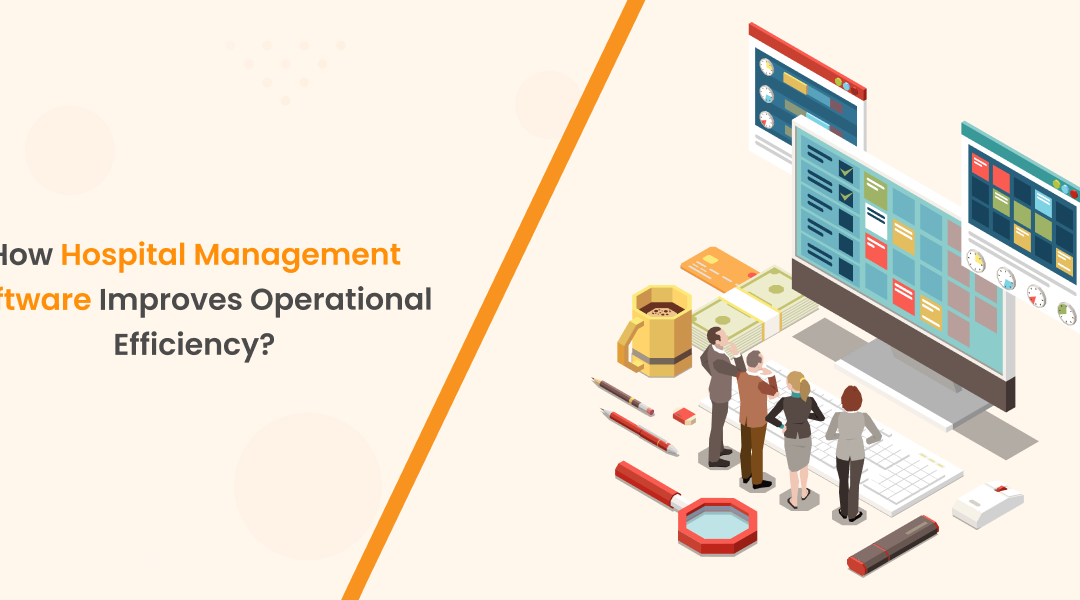In today’s fast-moving medical environment, the demand is high for top-notch technologies. Among those basic technologies playing a keen role in improving the efficiency of a hospital is known as Hospital Management Software. It helps the hospital organize its operations, optimize resources, cut costs, and improve patient care. This development has revolutionized the way these healthcare institutes manage daily operations, starting from admissions to discharge, making the whole circle of healthcare more efficient and effective.
Overview of Hospital Management Software
HMS or Hospital Management Software is an integrated solution for managing various functions related to running a hospital. It provides automation of administrative functions, maintains patients’ information, and billing, among many critical functions. The key objective of hospital management systems is to enhance operational efficiency and patient satisfaction, allowing smoother workflows throughout the departments.
Previously, manual systems dominated hospitals, which were more time-consuming and prone to errors. With the dawn of development in hospital management software, various functions have been brought to a single platform for better visibility, control, and coordination. Today, integrated patient registration, scheduling, billing, EHR, inventory management, and reporting make some of the top hospital management software solutions indispensable tools in a modern hospital.
Key Features of Hospital Management Software
The hospital management software systems are designed to facilitate the workings of hospitals with many features. All these features go to automate the operations, improve the accuracy, and enhance the inter- and intra-departmental communications.
- Patient Information Management
The result will be that all the records about the patients are kept well along with their data, case history, diagnosis, and treatment.
- Billing and Financial Management
One of the big challenges involved in running the operations of a hospital relates to managing the financial front. The best hospital management software comes integrated with billing and accounting modules covering the entire cycle of patient billing right from insurance claims, procedure-based billing, and payment management. The system keeps track of all the transactions for transparency and at the same time minimizes the chances of errors.
- Appointment Scheduling
Smooth appointment scheduling: Doubled booking or even a conflict in the schedule can hardly take place with a smooth and integrated practice management system. Since all doctors and other personnel availability are quite clear, appointments get much easier to book.
- Inventory and Resource Management
For any hospital to function well, good management of the resources within it is highly needed. Hospital management systems will aid in tracking the availability and use of consumables such as medical supplies, equipment, and pharmaceuticals. This will prevent out-of-stock situations in a hospital, along with prevention of overstock that ties down valuable resources.
- Reporting and Analytics
The reports and analytics generate for different aspects of the flow of patients, revenues, and resources utilized inside the facility are done with the help of the Hospital Management Software. This will thereby enable the administration to make proper decisions and find loopholes for better performance.
Benefits of Hospital Management Software
Many benefits are derived from the hospital management software, and it has been a real cause for bringing efficiency in the operations. Some of the major advantages of using HMS include:
- Efficiency and Productivity
This cuts down manual processes, thereby freeing health providers to actually attend to the patients. Automation of patient registration, scheduling, billing, and reporting removes the redundancies that have freed up the time of the hospital’s staff; hence, there will be an increase in workforce productivity, a reduction in administrative burdens, and staff will be allowed to devote more hours to direct patient care.
- Improved Patient Care and Experience
It will speed up the entire process of admission, appointment, and maintenance of records, which may further help health professionals in providing quicker and more precise treatment.
- Efficient Communication
Good coordination in communication among various departments remains at the heart of any work executed in a hospital. This management software helps doctors, nurses, administration, and even patients to communicate in real-time.
- Reduced Operational Costs
This could be one of the critical reasons for the use of hospital management software in such huge numbers: it saves running costs. By automating various administrative functions, it reduces the number of people required to do non-clinical roles, hence saving labor wages. The software helps in eliminating operational inefficiencies that assure better resource utilization along with reduced waste. It optimizes hospital inventory management; this, in turn, helps keep many factors of overstocking and resultant expenses at bay.
- Data Security and Compliance
The increasing demand for EHRs is a huge concern in security and compliance issues. Management software will offer security in storing data relate to patients, and at the same time, it is bound by laws such as HIPAA to protect patient data.
Hospital Management Software Companies: Lead the Way
To begin the work with HMSS, definitely, the right choice of place is necessary. Plenty of firms operate in providing Hospital management software, and many of them have different solutions to offer. The choice depends entirely on the size, budget, and type of need one is going to fulfill within a hospital.
Some of the major companies in the provision of software solutions for hospital management have already deployed both on-premise and cloud-based solutions. On-premise systems allow full control over data security and enable better customization.
Cerner, Epic Systems, Allscripts, and Meditech are some leading companies involved in the development of hospital management software. The potential future of such software therefore goes hand-in-hand with the company’s innovations with growth in demanding healthcare management.
Conclusion
Finally, hospital management software plays an important role in increasing the operation efficiency of hospitals and all other healthcare facilities. In this regard, automation of administrative processes, improvement of communications, and streamlining of care for patients enable hospitals to provide better service to their patients with reduced cost and enhanced productivity.
